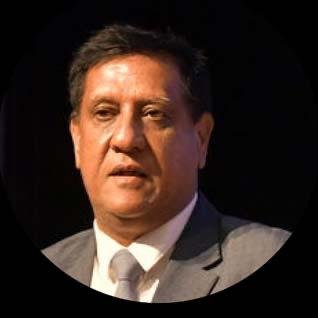Syed Ali Mujtaba | Clarion India
THE BJP government’s envisaged amendments to the Waqf Act of 1995 are on the lines of the Citizenship (Amendment) Act (CAA) and the National Register of Citizens (NRC) which have a huge bearing on the country’s Muslims.
The proposed bill, presented in Parliament on Thursday and referred to a 31-member Joint Parliamentary Committee (JPC) on Friday, seeks to bring 40 amendments to the existing act and to revoke several clauses in the laws governing Waqf boards.
No wonder the proposed amendments have evoked severe criticism from the Muslim community. The hidden agenda for bringing the Waqf Amendment bill is to census the Waqf properties again after the issue was settled in 1947.
This necessity has arisen because several Muslim tracts of land that are listed as Waqf properties like the mosque in Varanasi, Idgah in Mathura, the Kamāl Maula Mosque (Bhojshala) in Dhar in Madhya Pradesh, etc. are demanded by the Hindutva forces to be given to the Hindu community. However, since such sites are declared as Waqf properties, they can’t be touched. The proposed measure is to undo the Waqf properties that are exclusively meant for the Muslim community. The general perception among Muslims is that the Narendra Modi government wants control of the Waqf properties to nationalise them and rob the Muslims of their cherished assets.
There has been a long-standing demand by the Muslim community that Waqf properties be organised on the lines of the Gurdwara Act of 1925 and freed from government control.
Muslims argue that if the Waqf property spread all through the country is handed over to their rightful representatives, the community can take care of its poor and needy segments. That would do away with the begging bowls Muslims often place before the government of the day. In such a scenario, Muslims won’t look at the government’s largesse for their development and progress.
However, successive governments were not receptive to such a demand by the Muslims due to its perceived adverse political repercussions.
The thinking goes that the formation of a Gurdwara Parbandhak Committee-like body for Muslims can create a political party similar to the Shiromani Akali Dal that holds considerable political clout in Punjab.
The government fears that giving such autonomy to the Waqf Board may lead to Muslims being organised under a pan-India identity which may be a problem for any future government and the issue of Muslim identity politics may fang again.
Here it needs to be mentioned that the Waqf properties are listed in the Muslim Waqf Board register in every Indian state. They are in the form of several mosques, graveyards, Takia (burial places of Sufi saints) Khanqahs, schools, orphanages, Idgahs, etc.
If Artificial Intelligence (AI) is used to ascertain the monetary value of the Waqf properties, the safest conclusion could be that Muslims are poor in India when they are so rich! This is because there is a deliberate attempt to keep them poor by successive ruling dispensations in the country.
If the true value of the Waqf properties is made public it can be safely said that Indian Muslims do not need any doles from the Ministry of Minority Affairs, for scholarships or Haj subsidies, etc. They can manage their financial problems on their own without any hitch.
However, the fact remains that many of the Waqf properties are encroached upon and have been swallowed by the land-grabbing mafia or are under litigation.
Instead of addressing these problems, the government wants to amend the Waqf Act to further complicate the underlying issues.

Syed Ali Mujtaba is a journalist based in Chennai. He can be contacted at syedalimujtaba2007@gmail.com

